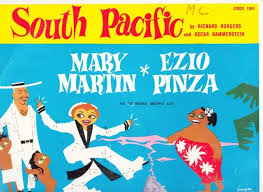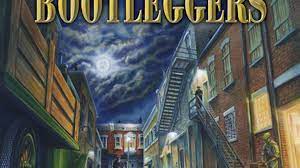In 1949, the United States found itself in the midst of a cultural renaissance, shaped by the aftermath of World War II and the burgeoning tensions of the Cold War. It was against this backdrop that "South Pacific," a groundbreaking musical, emerged as a powerful reflection of American society's attitudes towards race, love, and war.
Written by Richard Rodgers and Oscar Hammerstein II, "South Pacific" debuted on Broadway at the Majestic Theatre on April 7, 1949. Set against the backdrop of the Pacific Theater during World War II, the musical intertwines the lives of American servicemen, nurses, and indigenous islanders on a fictional South Pacific island.
At its core, "South Pacific" grapples with themes of racial prejudice and intercultural romance, tackling issues that were particularly relevant in the post-war era. The character of Nellie Forbush, a young American nurse from Arkansas, confronts her own prejudices when she falls in love with Emile de Becque, a French plantation owner with mixed-race children. Their relationship challenges societal norms and exposes the deep-seated racism prevalent in American society at the time.
The musical's exploration of interracial relationships was groundbreaking for its time, as it dared to address taboo subjects with sensitivity and nuance. Through songs like "You've Got to Be Carefully Taught," Rodgers and Hammerstein conveyed the insidious nature of prejudice, highlighting how hatred and bigotry are learned behaviors rather than inherent traits.
In addition to its social commentary, "South Pacific" also serves as a poignant meditation on the human cost of war. Characters like Lieutenant Joe Cable grapple with the moral complexities of duty and honor amidst the backdrop of a brutal conflict. Songs like "Bali Ha'i" and "Some Enchanted Evening" capture the longing and uncertainty that permeated the lives of those stationed in the Pacific Theater.
Beyond its thematic depth, "South Pacific" was a technical marvel, featuring innovative staging and choreography by director Joshua Logan. The musical's lush orchestrations and memorable melodies, including classics like "I'm Gonna Wash That Man Right Outa My Hair" and "I'm in Love with a Wonderful Guy," helped solidify its status as a Broadway classic.
Upon its release, "South Pacific" was met with critical acclaim, winning ten Tony Awards, including Best Musical, Best Score, and Best Libretto. Its commercial success was equally impressive, running for over five years on Broadway and spawning numerous revivals and adaptations.
However, "South Pacific" was not without its controversies. Its frank depiction of racial prejudice sparked backlash in some quarters, with some Southern theaters refusing to stage the production due to its integrationist themes. Nevertheless, the musical's impact was undeniable, prompting national conversations about race and tolerance at a crucial moment in American history.
In the decades since its debut, "South Pacific" has endured as a timeless classic, beloved for its stirring music, compelling characters, and enduring themes. Its legacy as a groundbreaking work of musical theater endures, serving as a testament to the power of art to provoke thought, inspire change, and unite audiences across generations.






